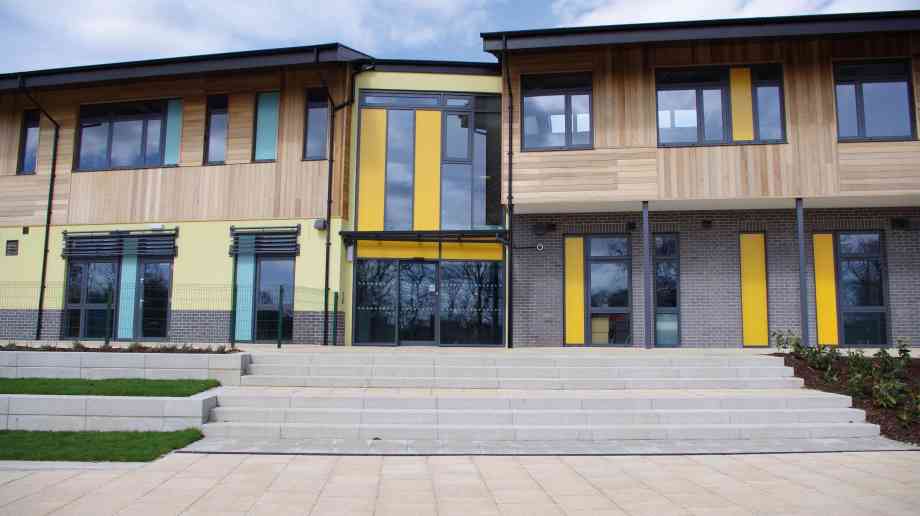
Innovative modular building solutions for the education sector
Given the steady rise in pupil numbers and the pressures this puts on schools to offer places, Jackie Maginnis of the Modular and Portable Building Association discusses the benefits of modular and offsite build as a possible solution to the ongoing problem.
In light of the recent media coverage around the education sector, it is no secret that the majority of UK schools are struggling with high demand for school places with a lack of additional facilities available in most areas.
Speed of delivery is a very important part of the requirements.
The modular and portable building industry has been around for many years and is available to provide low cost, sustainable solutions to the education sector.
Modular buildings can be manufactured with ultra quick lead times and supplied as an extension or an ‘add on’ to meet peaks in demand. Structures are available as either a permanent or temporary option at cost to suit the client’s needs. Modular also presents other fundamental benefits, making modular a sound choice for schools that require an expansion or an upgrade. Other such benefits include energy compliance, meeting the latest regulations and the ability to create complete bespoke design solutions.
Flexibility, design and build
Given the limited amount of space available in the majority of existing schools, modular buildings provide an instant advantage to those who desperately need a cost effective and bespoke solution to utilise all the space available. Modules can also be used as a temporary or permanent measure, which in some cases provides options for a fully functional school buildings to be removed and reused if required.
Modular units are thoroughly planned and designed to suit specific user requirements, buildings are also created offsite in a factory, which enables urgent school buildings to be delivered faster resulting in minimum disruption.
Educational Building Regulations
Modular buildings are constructed to the latest standards and are fully compliant to all building regulations, encompass Part L energy efficiency; this means modular build also presents lower carbon emissions. Members of the MPBA are able to produce the required Energy Performance Certificates, so a customer can be certain of the energy rating for a building.
Education like many other sectors of construction today will be looking to resolve its future requirements in the most efficient and cost effect option as possible. Looking for more efficient ways of delivering a project on time, improving quality and measuring carbon emissions, reduction of waste on site coupled with reducing unnecessary labour costs. These can all be achieved with modules built off site in a controlled factory environment. Volumetric buildings where possible are delivered to site in a virtually finished state.
Key drivers for the use of Modular Volumetric Buildings include: sustainability; reduction in on site waste – controlled factory waste; and reduction of carbon emissions.
Given the fact that modular buildings have been a major contributor to the construction industry since the post war years, there is still a tendency for many to regards the process of offsite construction to be a new and unknown quantity with many associated risks. Many still look to the traditional construction as a safer bet.
The old fashion procurement practice with its low levels of productivity, often poor quality finishes, most certainly more material waste and on site control, over run on contract periods and in turn costs.
Traditional construction methods struggle to deliver high levels of performance and require a high degree of accuracy, this is much more achievable in a factory controlled environment.
Times have changed
Modular Building companies today can offer all the elements to deliver a Turn Key Package without the need to absorb expensive procurement costs which can be ill-afforded in today’s market place.
Today the subject of ‘old cabins’ remains in people’s minds, the fact is that designs have moved on. What is most frustrating is that there is an industry sector out there that has the answers but no one seems to want talk to us direct.
Albeit there are still some old buildings out there surely that is testament to the fact the buildings can stand the test of time‑way beyond the expectations of old.
Think what can be achieved now modern technology companies are offering a 60-year design life. Buildings are available to buy new, buy recycled, or hired and can be can be designed to fit into difficult locations and tailored to suit the client’s budget. There is without a doubt an issue as to how the needs are met to suit all applications – is there a need for standardisation or a bespoke design for specific applications.
The modular industry is fully aware of the difficulty in filling ‘space’ on many schools where improvements are required-what fits-where it fits and how it fits is critical.
If there is a requirement to create a new building, decide early, embrace with the designs of modular building solution – do not design a fait accompli. Engage with the MPBA: its advice is free. Engage with a modular builder, this will enable the architect at an early stage to see how best to manufacture the building being designed and how to get the best out of construction which should create a cheaper and faster solution that suits everyone.
Most modular builders are happy to act as the principle contractor, so when developing a new scheme where the bulk value is modular go direct.
Today the education sector can get all of its requirements met; there is no need for the process to be complicated. Buildings can be designed as standard or bespoke with everything undertaken by the supplier. Good examples of buildings can be found on the MPBA web site, where members have detailed many cases where they have fulfilled a need. There are also case studies in the Industry News sector, where you can see many examples of good quality and professional educational buildings.
Further Information
www.mpba.biz
Latest News
05/02/2026 - 10:40
Schools are invited to take part in a practical, hands-on roundtable at Education Business LIVE 2026, exploring the complex relationship between wellbeing, attendance and behaviour in schools.
05/02/2026 - 10:04
A new report has show that Scottish primary schools are demonstrating strong language teaching and that rising numbers of senior pupils sitting language exams, but that structural barriers remain in secondary schools.
04/02/2026 - 10:15
The World Health Organisation (WHO) has published a report providing recommendations for healthy and nutritious food in schools around the world.
03/02/2026 - 10:48
Education Business LIVE on 26 March will be hosting a practitioner-focused roundtable led by Whole School SEND.
03/02/2026 - 10:38
The Council for Disabled Children (CDC) and IMPOWER have announced a new partnership offering insight and practical support to local SEND systems at a critical point in SEND system reform.







